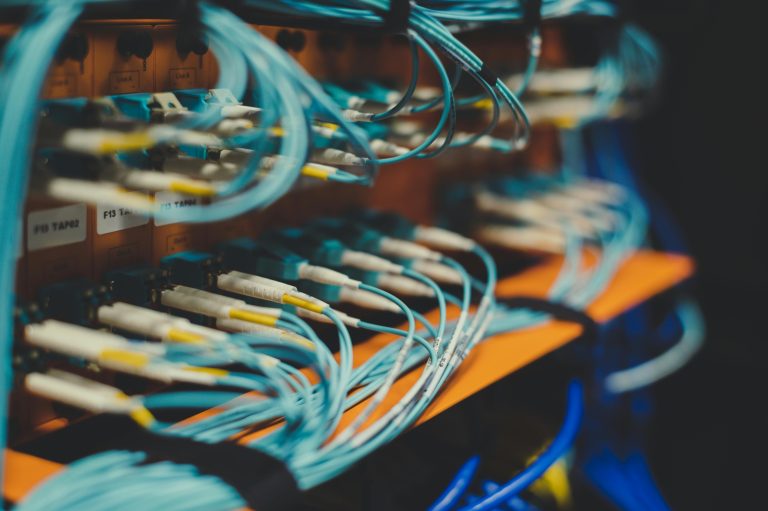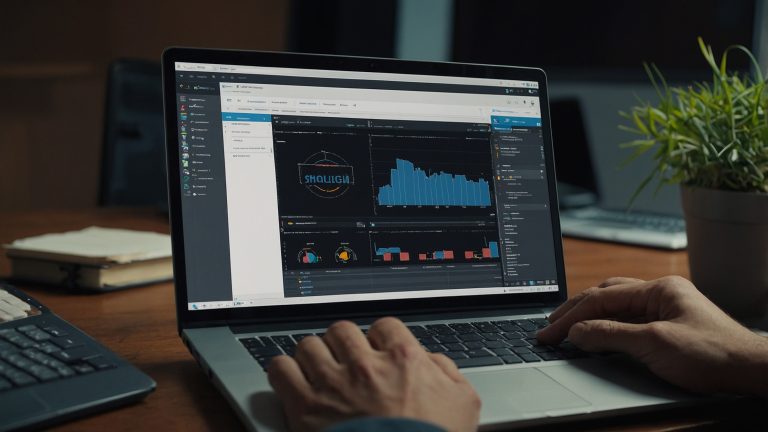
AI In Finance: The Evolution of Smart Money
Introduction
Ever heard the saying: money makes the world go round? You probably don’t know how true it is. But those who do will always pay attention to the financial market, which is why they would be quick to notice that the way we manage, move and multiply money is changing fast.
What’s at the heart of this transformation is a new market mover you’ve probably heard about more and more frequently in recent years: artificial intelligence.
Yep. AI isn’t just about cool techs and robots anymore, it’s already deep in the finance game, quietly reshaping how banks work, how we invest, and even how frauds get caught.
Whether you’re an investor who’s been in the game for long or someone who just wants to make smarter choices with their cash, understanding how AI is flipping the script on finance is something you don’t want to sleep on.
Core Applications Of AI In Finance
So, where exactly is AI showing up in finance? Let’s break it down.
First off, there’s Fraud Detection.
Fraud detection has gotten way smarter. Back in the day, banks used basic rule-based systems to catch shady transactions. But with the advent of AI, those went out the window. Now, AI learns your spending habits, detects odd behavior in real-time, and raises red flags before things spiral. It’s like having a security guard that never sleeps.
Then there’s Credit Scoring.
With the advent of AI, traditional credit checks have gotten outdated. Now, AI can analyze large amounts of data from all sources, payment history, rent and utility bills, spending habits and sometimes, even your social media behavior , to build a clearer picture of creditworthiness. It wouldn’t be an exaggeration to say a certain bank’s AI probably knows you better than you know yourself.

Algorithmic Trading is another big one.
AI in finance has completely ushered in a new era as far as trading is concerned. Rather than a single individual making decisions based on their limited experiences, algorithms can analyze large datasets – news feeds, market trends, historical patterns – and execute the most suitable trades at speeds and volumes no human could hope to match.
And let’s not forget Robo-Advisors
No longer do you need a suit and tie to be a smart investor. Those digital guys make very good financial planners. They help the average guy with average financial knowledge invest smartly based on their goals and risk appetite.
Last but not least, Chatbots.
AI powers the chatbots that handle your banking queries 24/7. They’re not just fast – they’re learning to sound human, too. Plus, with the ability of AI to read emotions in texts and words, no longer would insensitive or too-stressed-out-to-care agents leave troubled customers unsatisfied.
In short, AI isn’t knocking at the door of finance anymore, it’s moved in and started rearranging the furniture.
Benefits Of AI In Finance
Now that we’ve seen where AI is showing up in finance, let’s talk about what it’s bringing to the table because the benefits? They’re massive.
First off, Speed.
AI doesn’t sleep, doesn’t take breaks, and definitely doesn’t procrastinate. Approving loans, detecting and flagging frauds, crunching numbers for investment portfolios. These are tasks that used to take hours, if not days. But now, AI handles them in seconds. In a world where money moves fast, that kind of speed is gold.
Next up, Efficiency.
AI is the ultimate multitasker. It automates the boring, repetitive stuff—like data entry or customer support—so that real human brains can focus on strategy and creativity. Financial institutions save time, money, and energy, all while getting more done.
Then there’s Accuracy.
When trained well, AI rarely misses. It spots patterns most human analysts would overlook, making predictions and decisions based on data rather than gut feelings. That means fewer errors, smarter choices, and way less risk of “Oops, we didn’t see that coming.”
Cost Reduction, the goal we all chase
Automating tasks and reducing human error means cutting down on operational costs. It’s not about replacing jobs, it’s about helping teams do more with less. And for companies looking to scale? That’s a dream come true.
Finally, Financial Inclusion.
Maybe the most powerful benefit of all. AI makes it easier for more people to access credit, get financial advice, and grow their money, even if they’ve been ignored by the traditional system. That’s a big deal.
Bottom line: AI isn’t just improving finance, it’s leveling it up. Faster, smarter, cheaper, and fairer. What’s not to love?
Risks and Ethical Considerations of AI in Finance
As much as AI in finance sounds like a dream, it’s not all sunshine and dollar signs. Just like any powerful tool, it comes with its fair share of risks. Ignoring them would be a rookie mistake.
First up, Bias and Fairness.
AI learns from data. But what if that data is flawed? Spoiler alert: it often is. If past financial decisions were biased (and let’s be honest, many were), the AI might just carry those same biases forward, approving loans for some and denying others unfairly. That’s a serious problem, especially when AI starts making decisions at scale.
Next, Transparency or the lack of it.
Some AI systems are like black boxes. They spit out results, but even the developers can’t fully explain how they got there. That doesn’t fly in finance, where decisions need to be clear, auditable, and accountable. Imagine getting denied a loan and not even being told why. Yeah… not cool.

Then there’s Security.
AI systems, especially the ones handling sensitive financial data, are prime targets for cyberattacks. Moreover, information theft is not even the worst case scenario. There’s something called adversarial AI, where attackers intentionally manipulate AI inputs to mess with the output. It’s like tricking a smart system into making dumb decisions. That could create a truckload of problems.
Lastly, Regulation is playing catch-up.
AI is moving fast. So fast that laws and guidelines have difficulty catching up. The absence of clear laws and guidelines means there are grey areas where mistakes can happen and people can get hurt without clear accountability.
So, yes, AI is powerful. But it has to be handled with care. The goal isn’t just smarter finance. Nope. It’s smarter, safer, and fairer finance. Which only happens when tech and ethics grow side by side.
The Future Of AI In Finance
First, expect ultra-personalized financial services.
AI won’t just analyze your credit score anymore. It’ll study your lifestyle, track your spending habits, learn your financial goals, and even detect your emotional patterns when it comes to money. You won’t have to go looking for advice, AI will give it to you before you even ask. In short, your finances will feel less like a puzzle and more like a personal concierge service.
Next, AI and DeFi will become best friends.
As decentralized finance and blockchain continue to grow, AI will help manage smart contracts, automate crypto trading, and bring a layer of intelligence to platforms that are traditionally hands-off. Transactions will be faster, safer, and more transparent, and the gap between traditional banking and digital finance will keep shrinking.
Human-machine collaboration will become the norm.
AI will likely not replace people, rather, it will likely become their copilot. While it handles the number-crunching and pattern-spotting, humans will still lead with big-picture thinking, creativity, and emotional nuance. The smartest financial teams of the future will probably have as much humans as machone. Half human, half machine, that’s how it’s looking.
Ethical AI will take center stage.
The future of finance won’t just depend on what AI can do, but what it should do. Fairness, transparency, and accountability will be the real power moves. Financial systems will need to prove they’re not just smart, but also trustworthy and built for everyone, not just the privileged few.
One thing’s certain: the game is changing.
And AI is holding the pen. The question now is will you just watch it unfold, or will you be part of the story?

Conclusion
So, let’s run it back.
AI in finance isn’t some far-off concept, it’s already here, doing big things. From catching fraud in real-time, to giving more accurate credit scores, automating high-speed trading, and offering round-the-clock support with robo-advisors and chatbots, the core applications are changing how money moves.
We have seen the massive benefits. Lightning speed, unmatched efficiency, greater accuracy, lower costs, and best of all, more people getting access to the financial system than ever before. That’s a real game-changer.
Of course, we must not forget the risks too. Biased algorithms, shady black-box systems, security threats, and outdated regulations could easily turn a smart tool into a dangerous one. That’s why ethics and oversight aren’t just nice-to-haves, they’re essential.
Looking ahead, AI will only go deeper. Hyper-personalized services, smarter DeFi, and a future where humans and machines work side-by-side, it’s all on the table. But the success of this evolution depends on how well we balance innovation with responsibility.
Here’s my take: don’t fear AI. Understand it. Stay informed, stay curious, and wherever you are in your financial journey, start thinking with the future in mind. Because the money game is changing and being ahead of the curve is the smartest move you can make.









